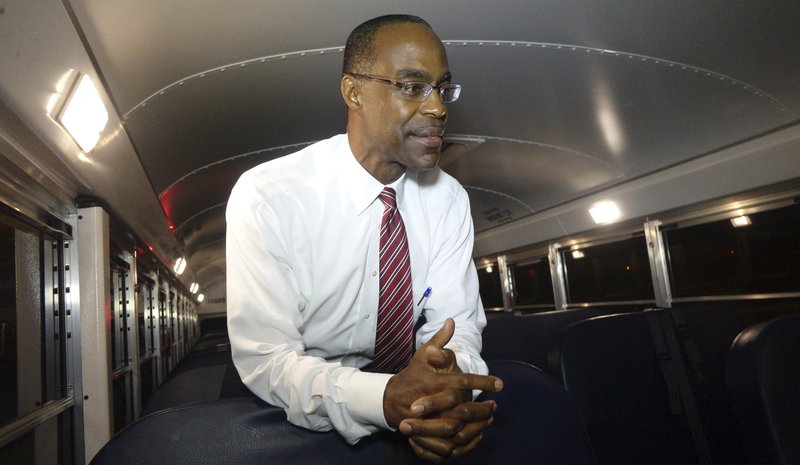FORT LAUDERDALE, Fla. -- A parent in Florida is citing profanity and violence in trying to get the local school to ban Ray Bradbury's Fahrenheit 451 -- itself a cautionary tale on the banning of books. Another wants to remove Walter Dean Myers' Bad Boy for using words including a homophobic slur.
Elsewhere in Florida, some say global warming and evolution should not be taught in textbooks unopposed. Others say their local school's textbooks shortchange Islam's role in the world, while their opponents argue it's the danger posed by Muslim terrorists that's underexposed.
Under a bill passed by the Florida Legislature this year, any district resident -- regardless of whether they have a child in school -- can now challenge material as pornographic, biased, inaccurate or a violation of state law and get a hearing before an outside mediator.
The mediator advises the local school board, whose decision is final. Previously, challenges could only be made by parents to the school or district. There was also no mediator and fewer mandates. Districts must now also post online a list of all new books and material by grade level to make monitoring easier.
The Florida Citizens' Alliance, a conservative group, pushed for the change, arguing that many districts ignored challenges or heard them with stacked committees, and didn't consider residents who don't have children in the schools. Members say boards rejected complaints over sexually explicit novels like Toni Morrison's The Bluest Eye being issued to middle school students. They also don't believe evolution and global warming should be taught without students hearing counterarguments.
Keith Flaugh, a managing director of the alliance, said schools are using materials and textbooks that "totally distort our founding values and principles. They are teaching our kids socialism versus free markets. They are teaching our kids that the government is our nanny, the government is supposed to protect them." He also said children receive a biased presentation against freedom of religion and gun rights.
Brandon Haught, spokesman for Florida Citizens for Science, which opposed the bill, said his group is prepared to fight any challenges made against the teaching of evolution and climate change. Haught, a high school environmental science teacher, said he is surprised social studies and English teachers have not formed similar coalitions to defend their courses.
"The alliance is pushing their narrow ideology on the public schools in any way they can and so far they're meeting with success. I can't speak for the other academic subjects they're targeting, but I know beyond a doubt that their ideology when it comes to science is grossly ignorant and doesn't belong anywhere near a classroom," Haught said.
Broward County Superintendent Robert Runcie, who is president of the state superintendents association, said the changes, which took effect July 1, are "cumbersome." Districts have always encouraged parents and residents to voice concerns about materials and curricula, he said, and the mediator is an unnecessary step.
The new law "creates a level of bureaucratic hurdle that could be disruptive to some good processes that are already in place," he said.
To gauge the challenges made, The Associated Press recently sent public records requests to Florida's 67 school districts, seeking any complaints filed this year. Seven reported receiving at least one.
In Santa Rosa County, in the western Panhandle, a parent wants Ray Bradbury's 1953 novel Fahrenheit 451 banned from schools because it contains profanity and violence. The book describes a dystopian future where firemen burn seized books after all are banned by the U.S. government.
In Nassau County, north of Jacksonville, a resident challenged the teaching of evolution, arguing that life was created and perhaps planted by space aliens. A hearing was held and the mediator is preparing a report.
In Seminole County, north of Orlando, two parents complained that a middle school ancient history textbook had no chapter on Islamic civilization while mentioning Christianity, Judaism, Buddhism and Hinduism. The district replied that Islam was emerging during the timeframe taught and is covered in 10th grade.
In Duval County, which covers Jacksonville, the parent of a sixth-grade girl complained that an assigned novel, Bad Boy by Walter Dean Myers, is too explicit for that age group because it uses the word "penis" and a homophobic slur. The parent also criticized its description of heroin use, gang violence and the protagonist's questioning of religion. The district agreed to warn parents before it is assigned.
A Section on 11/27/2017
